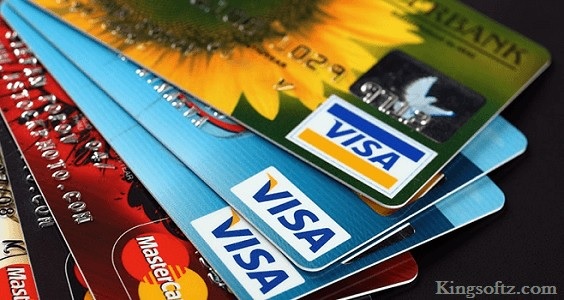All About Accepting Credit Card Payments And The Fees It Involves
Businesses need to accept credit card payments as they are fast surpassing cash transactions. The biggest reason for this is that shoppers are prone to overspend, whenever they use cards in place of cash. This development can be encouraging for small business owners, making it imperative for them to understand the nuances of the process.

Accepting credit card payments can boost your online sales
What makes the process to accept credit card payments more complex or riskier is that there are many players involved when the card gets swiped. A cash transaction involves only two parties, the giver and the receiver. But, credit card transactions involve the consumer, the business, a bank, the customer’s bank, a card network, hardware, and a payment processor.
It is important for businesses to accept credit card payments
How Do Retailers Accept Credit Card Payments?
- To begin with, a card network will issue a credit card. There are 4 key providers, namely, Visa, Mastercard, American Express, and Discover. These providers can issue their credit or offer cards for other institutions like banks. The payment processor will accept a credit card swipe, after which it asks the network for approval. If approved, the processor then accepts the payments, and it gets deposited in the merchant account.
- The payment gateway refers to a secure webpage wherein buyers can provide their payment details that are then be processed. The software needed for accepting such information will depend on whether the transactions are online, in-person, or over the phone.
- When the data from the buyer’s credit card gets swiped or entered manually, the payment processor will send this data to the merchant accounts. For online transactions, this data passes through a secure gateway that will authorize the merchant to ratify the online payment. On its way to this merchant account, the payment processor verifies the data with the buyer’s bank or the bank that issued the card, before any payment information is accepted or denied. This decision is taken only after checking whether the buyer has ample funds, is spending an amount less than his credit limit, and also for any proof of fraud.
- When the issuing bank has approved of the purchase by the customer, you can go ahead and accept the payments. The transaction is then over. If the bank does not ratify it, the payment gets declined.
- Once it accept credit card payments, the processor then deducts its own fees and deposits the rest into the merchant account.
Important Credit Card Processing Fees That You Need To Know About:
- Interchange Rate: All the 4 key credit card companies charge fees for their products, and this is called the interchange fee. But the rates may differ from one provider to the other, and so do the level of risks. In-person transactions involve fewer risks than online transactions since the chances of fraud are low. Sometimes fees are higher when card networks feel that a business or industry is riskier than others.
- Markup Fee: Besides the interchange fee, the payment processor will charge another fee called markup fee. It is how every processor makes money through every transaction. The rates will vary depending on the risks of fraud, payment plans, and the specific processor. Tiered plans will charge different fees according to the kind of transactions. So the riskier a transaction, the higher is the fee. Interchange-plus plans combine the markup and interchange charges into a single fee. Flat-rate plans will charge a fixed processing fee for each transaction.
Transaction Fees For Different Payment Gateways:
Shopify Payments: When you use Shopify Payments, which is its own payment gateway, there will not be any fee on transactions. But, if you use external payment gateways like Stripe or Paypal, you must pay additional charges, depending on the subscription plan. For instance, for those buying the Basic Shopify Plan, it is 2% per transaction, for Shopify, it is 1% per transaction, while for Advanced Shopify, it is 0.5%.
Regardless of the payment gateway, there will be a credit card processing charge if the customer uses them for payments. This rate is also dependent on the subscription plan and is 2.9% +30 cents for every transaction, 2.6% + 30 cents for Shopify Plan, and 2.4% +30 cents for Advanced Shopify.

Shopify offers different transaction fees depending on the plan
Square’s Payments: Processing Fees here are 2.6% for every transaction by card, 2.9% + 30 cents for every paid Square Invoice and Online Store sales, 3.4% +15 cents for manually-entered transactions, and $0.10 for Interac Debit Tap sales.
Paypal Payments: The Paypal and Strip transaction fees differ from one country to another. American Express fees will be charged for PayPal Payments Pro, Virtual Terminal, and PayPal Payments Advanced. PayPal has cross border fees. While international cards are free, there are currency conversion costs about 2%.
When you connect Stripe to a GBP Bank account and charge in USD, Stripe will convert the funds to GBP for a 2% fee and then deposit this into the GBP account. But, if you connected a USD bank to Stripe, there would not be any charge. Also, PayPal will charge 30 cents for every uncaptured authorization and verifications of credit card transactions.